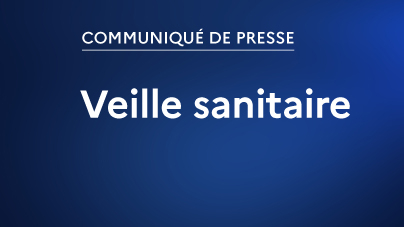Saint-Quentin, Aisne
/https://en.wikipedia.org/wiki/Saint-Quentin,_Aisne
--------------------------------------------------------------------------
Translation Google
SAINT-QUENTIN: Several cases of severe food poisoning
Updated on 06/18/2025

SAINT-QUENTIN: Several cases of severe food poisoning, including 4 cases of hemolytic uremic syndrome
| Seven cases of mucous-filled diarrhea have been reported in children aged 1 to 12 living in Saint-Quentin and the surrounding area. Symptoms began between June 12 and 17, and four of them developed hemolytic uremic syndrome (HUS), one of whom died. Public Health France (SPF) and the regional health agency (ARS) are conducting investigations to identify the source of the infections. Update as of June 18 The ARS (Regional Health Agency) was informed of the death on June 16 of a 12-year-old child living in Saint-Quentin from hemolytic uremic syndrome (HUS). HUS is a rare complication characterized by acute renal failure, due to the presence of Shiga toxin. Six other children, also living in or near Saint-Quentin, were treated in the emergency room of the Saint-Quentin hospital between June 13 and 18 for severe digestive symptoms (bloody diarrhea), three of whom had HUS. Biological analyses are underway to identify the bacterial strain that infected each child and to determine whether these strains have similar characteristics. An investigation is underway to determine the origin of this poisoning. As soon as these cases were reported, SPF and ARS immediately began investigations to look for a possible common origin of the contamination. The initial elements of the investigation did not establish that these seven children ate meals together. At the current stage of the investigation, it appears that the children do not all attend the same groups and the families have multiple sources of food. Investigations are actively continuing. HUS, a complication of a bacterial disease HUS is an infectious disease most often of food origin that occurs in most cases as a complication of poisoning by a bacterium of the Escherichia coli (E. coli) family. An infection by the E. coli bacteria manifests itself by diarrhea often accompanied by blood, abdominal pain and sometimes vomiting which can progress, after about a week, to a severe form of the infection. This manifests itself by great fatigue, pallor and a patient who urinates much less (or not at all), with darker urine. This is called hemolytic uremic syndrome (HUS). The patient must be hospitalized quickly and receive appropriate treatment. This disease remains uncommon with between 100 and 165 children recorded each year by Public Health France. Consult a doctor immediately in case of bloody diarrhea. If you notice that your child has bloody diarrhea, call 15. Person-to-person transmission is possible, particularly in household settings or in groups of young children. Hand hygiene measures should therefore be routine in cases of diarrhea. Hygiene recommendations to prevent the risk of foodborne illness As with any foodborne illness, prevention involves respecting the following rules:
|
...







Comment